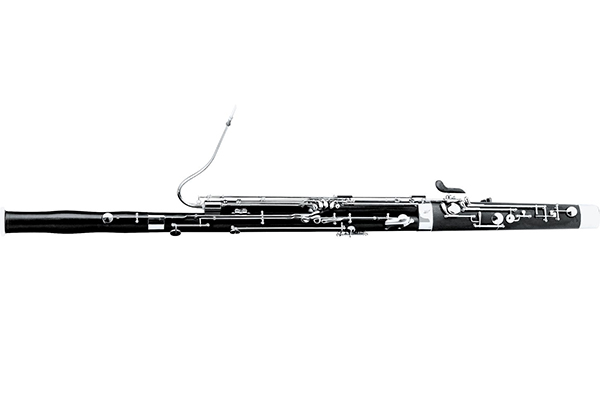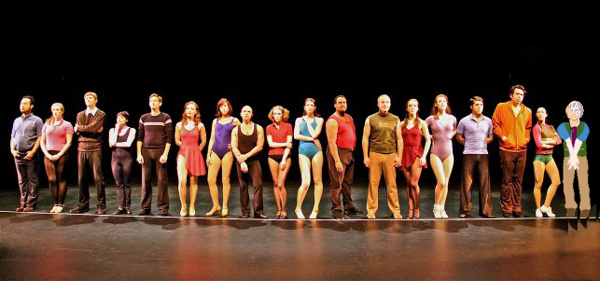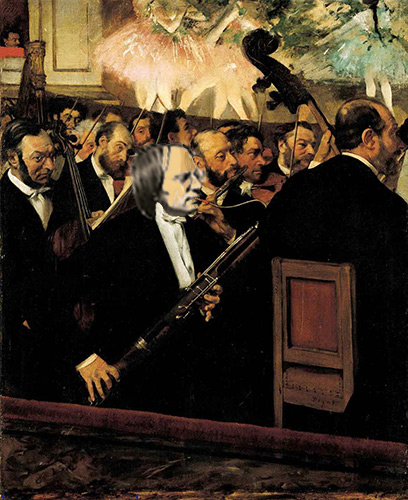A month before The Rocky Horror Picture Show released to an initially unimpressed audience, Daphne and I attended
The Rocky Horror Show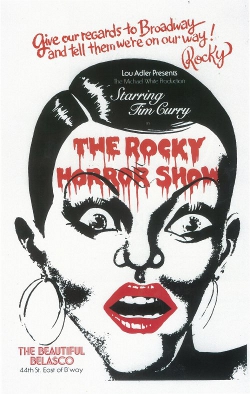 musical at
Kings Road Theatre.
musical at
Kings Road Theatre.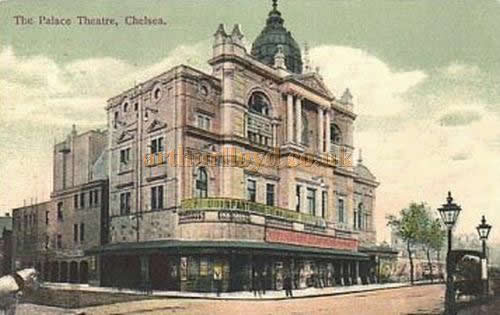 It had premiered two years prior at the Royal Court Theatre with Tim Curry in the lead. I don't recall if Tim was there this night, but I do remember that the lights would not work, so we viewed the musical without the necessary pseudo spooky effects. For instance, the vampire's entrance on a wire lost all its drama. Consequently, it was a rocky and horrible presentation, but memorable because of this technical failure. Without lighting, most stage presentations are unimpressive, and so, I too remained unimpressed. Not until I saw the picture show version a few years later with an enthusiastic crowd of devotees, could I appreciate what was going on.
It had premiered two years prior at the Royal Court Theatre with Tim Curry in the lead. I don't recall if Tim was there this night, but I do remember that the lights would not work, so we viewed the musical without the necessary pseudo spooky effects. For instance, the vampire's entrance on a wire lost all its drama. Consequently, it was a rocky and horrible presentation, but memorable because of this technical failure. Without lighting, most stage presentations are unimpressive, and so, I too remained unimpressed. Not until I saw the picture show version a few years later with an enthusiastic crowd of devotees, could I appreciate what was going on.
I have never really cared for opera or its decadent 20th century reincarnation — the musical, even though I made a quasi living for 20 years tooting my bassoon in the background while some grande dame of stage and screen warbled in the upper stratosphere of vocal possibility. My job was less that of a musician and more that of a plumber. I have only met one plumber who was passionate about his job and that was Pete the Plumber. For him, pipes were a symphony orchestra waiting to be conducted. For me, plumbing my
bassoon
As Jimmy Dean, former famous sausage maker and country singer, once told me standing back stage at the Grand Ole Opry,
A bassoon is an ill wind that nobody blows good.
Then he asked me to play Yakety Bassoon
. I declined.
was more about scraping on the little piece of wood at one end of the pipe rather than what came out the other — not a very romantic pastime for keeping with the style of music produced. The practical necessities of music making, however, are not very romantic. Renaissance music instruments are not only curiously anachronistic machines in our digital age, but they are also jealously demanding of a musician's care and time.
My favorite music is the symphonic classics from Mozart to Mahler and not far beyond; and this does not include musicals nor their big sisters, like Brunhilda, yelling over the orchestra. So I was delightfully surprised one night a year later when friends invited me to a performance of La Bohème by the Lyric Opera of Chicago. I could not afford the price of a ticket, but at intermission, doors opened and admission was suddenly free. What I saw and heard was a spectacular stage production, one that is invisible to anyone in the orchestra pit. Symphony members playing operas are like cruise ship
crewmen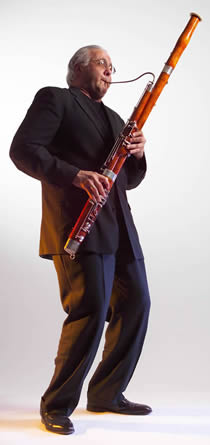 stuck in the boiler room — all noise and no scenery. What I took away from this performance, eventually freed me from orchestral boiler rooms. Soon I would crawl out of those pits and into the balcony I longed for.
stuck in the boiler room — all noise and no scenery. What I took away from this performance, eventually freed me from orchestral boiler rooms. Soon I would crawl out of those pits and into the balcony I longed for.
My symphony years would thankfully go on hiatus the following year. The last musical I played was the
Chorus Line
For some reason, musicals have become vastly more interesting as I have grown older.
in January 1980. For many minutes during each performance I had nothing to do and would tend to daydream rather than count measures. In one performance, our conductor forgot to cue me in at an important moment. He grew angry and whispered very loudly Follow me, follow me!
Shortly thereafter, the maestro thought it safe enough to leave the pit and observe the show. So I followed him. When he discovered me standing behind him, his sense of humor was undetectable. Well, you did say to follow you
, I mumbled as I returned reluctantly to my place in the pit.
